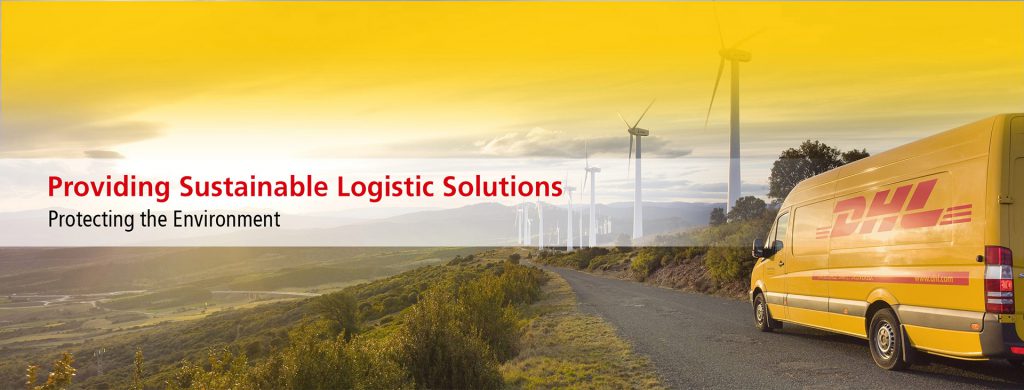With the expansion of the global e-commerce industry, a few days ago, the e-commerce department of the logistics industry giant Deutsche Post DHL is piloting a new policy for returning cross-border e-commerce.
Recently, Charles Brewer, CEO of DHL E-Commerce, revealed that the two-way pilot project on the US-UK line and the US-Australian line has been underway for more than a month. In an interview, he said that the pilot implementation of the new policy of return is to establish a comprehensive cross-border e-commerce return system, including providing services directly to the seller, strengthening the logistics and transportation of returned goods in the storage center and operation center, and handling low value. Return of goods, and the purpose of recovery, repair, or modification of returned goods with a shelf life.
DHL’s return pilot program will leverage the strengths and strengths of the various divisions of the group. For example, as a world-renowned large contract logistics company, DHL supply chain has rich experience in operating contract warehouses and operation centers. In this pilot, it is responsible for strengthening the return logistics and transportation of warehousing and operation centers; DHL express department is responsible for the transportation of returned goods. If necessary, DHL Global Freight will also participate to provide freight services.

DHL
Most countries will greet the return of the first ten days of January. It is unclear whether DHL’s return policy will be officially implemented during the holiday return period.
Although other logistics companies will provide buyers with direct return to the seller’s services, so far, no cross-border e-commerce return service in the market can compete with the domestic market development. — Charles Brewe, CEO, DHL E-Commerce
Earlier this year, Kunic Mikuriya, secretary general of the World Customs Organization (WCO), said that many countries had encountered a “small package tsunami”, and the emergence of a large number of small parcels left the customs agency responsible for clearing B2B business unprepared. How customs agencies deal with e-commerce return goods is a major challenge in providing cross-border e-commerce return services.
Charles said that DHL e-commerce currently has no problems in the timely clearance of goods. However, with the growth of cross-border e-commerce business, the clearance of small parcels must be resolved.
Charles believes that the foreign trade zone model of manufacturing has been formed, and the concept of e-commerce free trade zone is worth considering. He also strongly supports the initiative of Ma Yun, founder and executive chairman of Alibaba, to establish an e-commerce world trading platform as a branch of the World Trade Organization.
DHL’s logistics network covers 220 countries and has a first-mover advantage in global e-commerce. It provides quality distribution services for multiple markets and has established good relationships with customs agencies in many countries. Headquartered in Bonn, DHL belongs to Deutsche Post DHL Group and has been focusing on the German postal business for decades and has been actively expanding into the logistics and transportation industry for the past 20 years. 2019 will be the 50th anniversary of the establishment of DHL.
According to DHL, global e-commerce transactions amount to about $3.7 trillion, of which $2.7 trillion is domestic transactions and the rest are cross-border transactions. Last year, the growth rate of cross-border transactions was 27%, while domestic transactions with higher total transaction volume increased by 9%.
Charles pointed out that the e-commerce business in China, the United States, France, and Germany will continue to grow, but due to the large base, the growth rate will gradually slow down. In the United States, the contribution rate of e-commerce to the retail industry is about 13%, but if the products that are not placed on the Internet, such as gasoline, are excluded, the contribution rate of e-commerce is close to 18%. In China, this figure is 24%.
He also said that the potential of emerging markets is huge. For example, Indonesia has a population of more than 276 million, but e-commerce accounts for only 0.5% of retail sales. According to DHL estimates, this ratio is about 1% in Africa. Charles estimates that there are only 10 to 12 shopping malls in Africa, north of Johannesburg, which means that millions of Africans have few opportunities to shop online. However, with the improvement of Internet facilities and the increase in disposable income, more and more Africans will start to contact online shopping.
However, in China, where e-commerce activities are most prosperous, DHL E-Commerce does not provide domestic logistics services. According to Charles, this is because the company believes that providing services to such a large country will bring high time and economic costs, whether through acquisition or organic growth. Therefore, DHL only provides services for China’s cross-border e-commerce import and export.
Charles also added that the current DHL e-commerce customers have not been affected by the Sino-US trade war. Recently, China and the United States have imposed a 25% tariff on goods worth $16 billion. The National Retail Federation (NRF) warned that the previous tariff list was mainly for industrial products and technology products, and the latest round of tariffs is aimed at daily consumer goods, which will have a direct impact on US consumers. For example, if a 25% tariff is imposed on imported Chinese furniture, American consumers will spend an extra 4.6 billion dollars on furniture. Even if the retailer imports from other countries, the price will not be low, because most countries have asking prices. It is higher than China.
Finally, Charles said that over the past few years, DHL and its customers have withstood the geopolitical threats and ensured a smooth running of the business. “No matter what happens, most companies can find ways to do business.”


